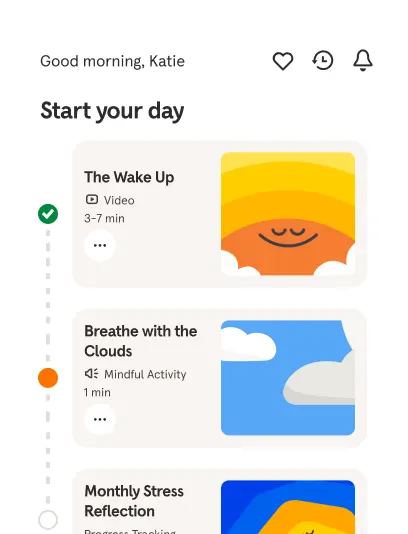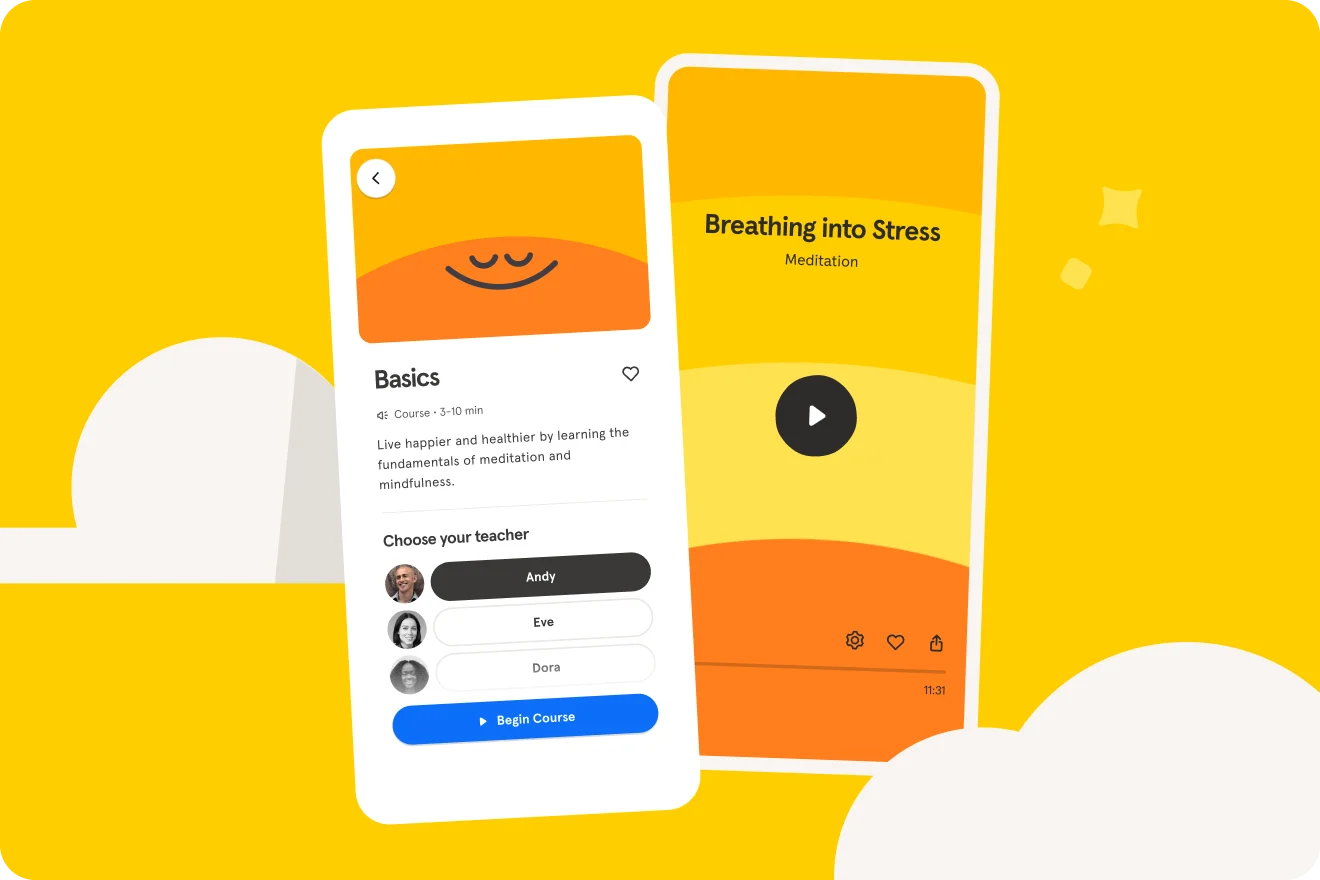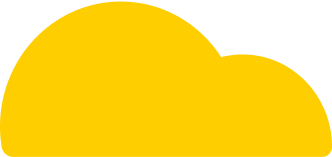The Science of Effective Breaks
Cognitive neuroscientist Lucas Miller is guest-hosting Radio Headspace all week. Today, he'll explain how taking a few minutes to ourselves helps us regain the energy to take on our most important tasks.
Try 14 days freeBetter mental health starts with Headspace. Unrivaled expertise to make life feel a little easier, using guided meditations, mindfulness tips, focus tools, sleep support, and dedicated programs.
Try 14 days free
Psst. (mouse clicks) (bright music) Headspace Studio. Hi there. It's Lucas Miller here, your guest host for the week. Welcome to Radio Headspace and to Wednesday. This week is all about using neuroscience to optimize your energy so you can perform better at work and get more outta life. And a big part of that is actually taking breaks. Breaks may seem counterintuitive to productivity but taking even a few minutes to ourselves can help us regain the energy to take on our most important work. So today I'll share how to optimize your breaks so you can take on whatever life brings. If you think back to the Industrial Revolution everybody breaked at the same time and otherwise you are working. And we basically started to treat and assume that people are like machines. Breaks have a purpose. Breaks help us regain energy to be productive. Now it's critical over time as we move into a world that is more about creativity, that we acknowledge that breaks are important, that we acknowledge that humans are not machines. I love sharing stories that highlight different myths or mistakes that many of us are sometimes making but we're not trying to make them. I was working a couple years back in San Francisco with an executive there and something she shared with me is she said, "Every single day in the afternoon I make a point to pull out a favorite book of mine. It's a fiction book that I like to read, and I read it and I do this because I wanna communicate to other people that it's okay to take breaks." And I told her, I said, that's great. I'm glad that you're encouraging people to have hobbies, do things that are not work specific, but let's actually talk about the break piece because you actually have it wrong. When we talk about breaks when we talk about true what I call brain breaks these are official breaks for your brain. Even if it's not work-related you can't be reading something. Let's use a physical analogy. If you were running sprints or lifting weights in between running sprints and lifting weights we know that we should rest our bodies. We know if we wanna maintain the same speed, same performance, then we should not keep sprinting or keep lifting weights. Otherwise, when we come back, we're gonna be slower and we're not gonna be able to lift as much. The mind is actually very similar. It's just one big system. If you are reading, if you're writing, if you are doing any kind of calculations, that's not a true brain break. So unfortunately in this case reading your favorite fiction book doesn't count. She now goes on a walk around the block which is much more effective for her stress levels for maintaining a sense of energy going into the second half of the day. That's a better break. Some other breaks that you may think are breaks that...
Details
About your teachers
- More about Andy
A former Buddhist monk, Andy has guided people in meditation and mindfulness for 20 years. In his mission to make these practices accessible to all, he co-created the Headspace app in 2010.
- More about Eve
Eve is a mindfulness teacher, overseeing Headspace’s meditation curriculum. She is passionate about sharing meditation to help others feel less stressed and experience more compassion in their lives.
- More about Dora
As a meditation teacher, Dora encourages others to live, breathe, and be with the fullness of their experiences. She loves meditation’s power to create community and bring clarity to people’s minds.
- More about Kessonga
Kessonga has been an acupuncturists, therapist, and meditation teacher, working to bring mindfulness to the diverse populations of the world.
- More about Rosie
Rosie Acosta has studied yoga and mindfulness for more than 20 years and taught for over a decade. Rosie’s mission is to help others overcome adversity and experience radical love.

Your lifelong guide to better mental health
Stress, sleep, and all the challenging emotions — care for your mind with the everyday mental health app that's shown to make a difference.
Try 14 days free
Look after your mind
Proven guided meditations and programs to help you stress less, sleep more soundly, and better navigate life’s challenges

Science-backed
Studies show that using Headspace for 30 days can reduce stress, increase resilience, and improve overall well-being

Explore 1000+ expert-led exercises
Access our library of meditations, breathing exercises, and guidance videos for stress, sleep, focus, everyday anxiety , parenting, and more.
Member reviews
Hear from some of our members
Your app brings so much peace and tolerance to our home.
Rachel
UK
Changing my thoughts has allowed me to change my life.
Davide
London
The stress and loneliness courses … taught me how to comfort myself.
Alicia
Canada
Headspace provides me with … a connection to myself, and a disconnection from negative thoughts, feelings, and sensations.
Keri
UK
Related to 'The Science Of Effective'
- © 2024 Headspace Inc.
- Terms & conditions
- Privacy policy
- Consumer Health Data
- Your privacy choices
- CA Privacy Notice

